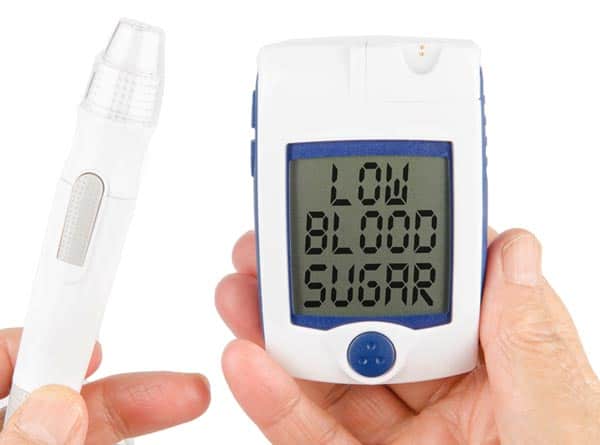In a world where Type 2 Diabetes has become an all too common diagnosis, the idea of reversing this chronic condition may seem like a far-fetched dream. However, recent research and groundbreaking advancements in the field of medicine are shedding new light on the possibility of unlocking a future where Type 2 Diabetes is no longer a life sentence. Join us as we explore the latest findings and strategies for reversing Type 2 Diabetes, and discover the potential for a healthier, diabetes-free future.
Unlocking the Potential of Lifestyle Changes
Living with Type 2 diabetes can be challenging, but it doesn’t have to be a life sentence. By making simple lifestyle changes, it is possible to reverse the effects of this chronic condition and improve overall health and well-being. One of the key ways to unlock the potential of lifestyle changes is through adopting a healthy diet. By incorporating more whole foods, such as fruits, vegetables, whole grains, and lean proteins, individuals can better manage their blood sugar levels and potentially reverse Type 2 diabetes.
Another important aspect of reversing Type 2 diabetes is regular physical activity. Exercise not only helps to control weight and lower blood sugar levels but also improves insulin sensitivity, which is crucial for managing diabetes. By incorporating a mix of aerobic exercise, strength training, and flexibility exercises into a daily routine, individuals can see significant improvements in their overall health and well-being.
In addition to diet and exercise, managing stress levels and getting an adequate amount of sleep are also important factors in reversing Type 2 diabetes. High levels of stress can negatively impact blood sugar levels, so finding ways to relax and unwind, such as through meditation or yoga, can be beneficial. Quality sleep is also essential for overall health and can help regulate blood sugar levels. By making these lifestyle changes, individuals can unlock the possibility of reversing Type 2 diabetes and enjoying a healthier, happier life.

Understanding the Link Between Diet and Insulin Resistance
When it comes to managing insulin resistance and even reversing type 2 diabetes, is crucial. Our diets play a significant role in how our bodies respond to insulin, a hormone that helps regulate blood sugar levels. By making strategic changes to our eating habits, we can unlock the possibility of improving insulin sensitivity and potentially reversing type 2 diabetes.
One key factor in the link between diet and insulin resistance is the glycemic index of foods. Foods with a high glycemic index can cause a spike in blood sugar levels, leading to increased insulin production and potential insulin resistance over time. By focusing on incorporating more low glycemic index foods into our diets, we can help stabilize blood sugar levels and reduce the risk of insulin resistance.
Another important aspect to consider is the balance of macronutrients in our meals. Consuming a balanced combination of carbohydrates, protein, and healthy fats can help regulate blood sugar levels and improve insulin sensitivity. Incorporating foods rich in fiber, antioxidants, and omega-3 fatty acids can also support overall health and reduce inflammation, which is often linked to insulin resistance.

Exploring the Benefits of Regular Exercise
Regular exercise has been shown to have numerous benefits for overall health and well-being, including the potential to reverse type 2 diabetes. By incorporating physical activity into your daily routine, you can improve insulin sensitivity, regulate blood sugar levels, and reduce the risk of developing complications associated with diabetes. This lifestyle change can help to unlock the possibility of managing and even reversing the effects of this chronic condition.
One of the key mechanisms through which exercise can help reverse type 2 diabetes is by increasing the uptake of glucose by muscle cells, thereby reducing the reliance on insulin to regulate blood sugar levels. Additionally, engaging in regular physical activity can lead to weight loss, which in turn can improve insulin sensitivity and reduce inflammation in the body. These combined effects can have a powerful impact on controlling and potentially reversing the progression of type 2 diabetes.
Incorporating a combination of cardiovascular exercise, strength training, and flexibility exercises into your routine can help maximize the benefits of regular physical activity for managing type 2 diabetes. By setting realistic goals, staying consistent, and monitoring your progress, you can take proactive steps towards improving your health and quality of life. Remember, consulting with a healthcare professional before starting any new exercise regimen is essential for ensuring that you are safely and effectively managing your diabetes.

The Role of Medication in Type 2 Diabetes Reversal
When it comes to reversing Type 2 Diabetes, medication can play a crucial role in helping to manage blood sugar levels and promote better overall health. While lifestyle changes are often at the forefront of treatment, medications can provide additional support in achieving remission. Some of the common medications used in Type 2 Diabetes reversal include:
-
- Metformin
-
- SGLT2 inhibitors
-
- GLP-1 receptor agonists
-
- DPP-4 inhibitors
These medications work in various ways to lower blood sugar levels, improve insulin sensitivity, and promote weight loss. They are often prescribed in combination with changes in diet and exercise to help individuals achieve optimal results in reversing Type 2 Diabetes.
| Medication | Function |
|---|---|
| Metformin | Improves insulin sensitivity |
| SGLT2 inhibitors | Promote weight loss by excreting excess glucose through urine |
| GLP-1 receptor agonists | Increases insulin production and slows down digestion |
It is essential to work closely with a healthcare provider when incorporating medication into a Type 2 Diabetes reversal plan. They can help monitor the effectiveness of the chosen medications and make adjustments as needed to ensure the best outcomes. By combining medication with lifestyle changes, individuals have the opportunity to unlock the possibility of reversing Type 2 Diabetes and improving their quality of life.

Creating a Comprehensive Treatment Plan for Long-Term Success
When it comes to managing Type 2 diabetes, creating a comprehensive treatment plan is essential for long-term success. By addressing various aspects of the condition, such as diet, exercise, medication, and lifestyle changes, individuals can unlock the possibility of reversing their diabetes and achieving better health outcomes.
One key component of a comprehensive treatment plan is **diet**. A balanced diet that is rich in fruits, vegetables, whole grains, lean proteins, and healthy fats can help regulate blood sugar levels and improve overall health. In addition, **exercise** is also crucial for managing Type 2 diabetes. Regular physical activity can help lower blood sugar, improve insulin sensitivity, and reduce the risk of complications associated with the condition.
| Medication | Lifestyle Changes |
|---|---|
| Metformin | Smoking cessation |
| Insulin | Stress management |
| SGLT-2 inhibitors | Weight loss |
By combining these various elements into a personalized treatment plan, individuals with Type 2 diabetes can take proactive steps towards improving their health and potentially reversing their condition. With the right support, education, and resources, it is possible to unlock the possibility of a healthier, diabetes-free future.
Q&A
Q: What is Type 2 Diabetes?
A: Type 2 Diabetes is a chronic condition that affects the way your body processes sugar (glucose).
Q: Can Type 2 Diabetes be reversed?
A: Yes, with the right lifestyle changes and medical interventions, Type 2 Diabetes can be reversed.
Q: What are some lifestyle changes that can help reverse Type 2 Diabetes?
A: Some lifestyle changes that can help reverse Type 2 Diabetes include maintaining a healthy weight, eating a balanced diet, exercising regularly, and managing stress.
Q: How can medical interventions help in reversing Type 2 Diabetes?
A: Medical interventions such as medications, insulin therapy, and bariatric surgery can help in reversing Type 2 Diabetes by helping to control blood sugar levels and improve insulin sensitivity.
Q: Is it possible for everyone to reverse Type 2 Diabetes?
A: While not everyone may be able to reverse Type 2 Diabetes, it is possible for many individuals with the right combination of lifestyle changes and medical interventions.
Final Thoughts
In conclusion, “Unlocking the Possibility: Reversing Type 2 Diabetes” sheds light on the transformative power of lifestyle changes in managing and even reversing this chronic condition. By harnessing the potential within ourselves to make healthier choices and embrace new habits, we have the capacity to unlock a brighter, healthier future. Let this be a reminder that with dedication, perseverance, and a willingness to explore new paths, we can truly unlock the possibility of living a life free from the constraints of Type 2 diabetes. So why wait? Start your journey towards a healthier you today.




